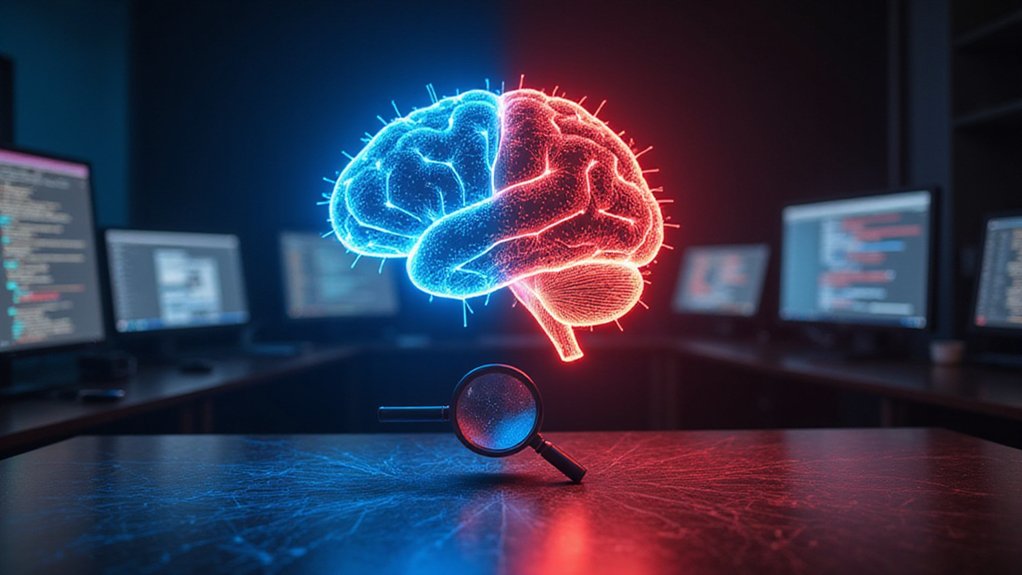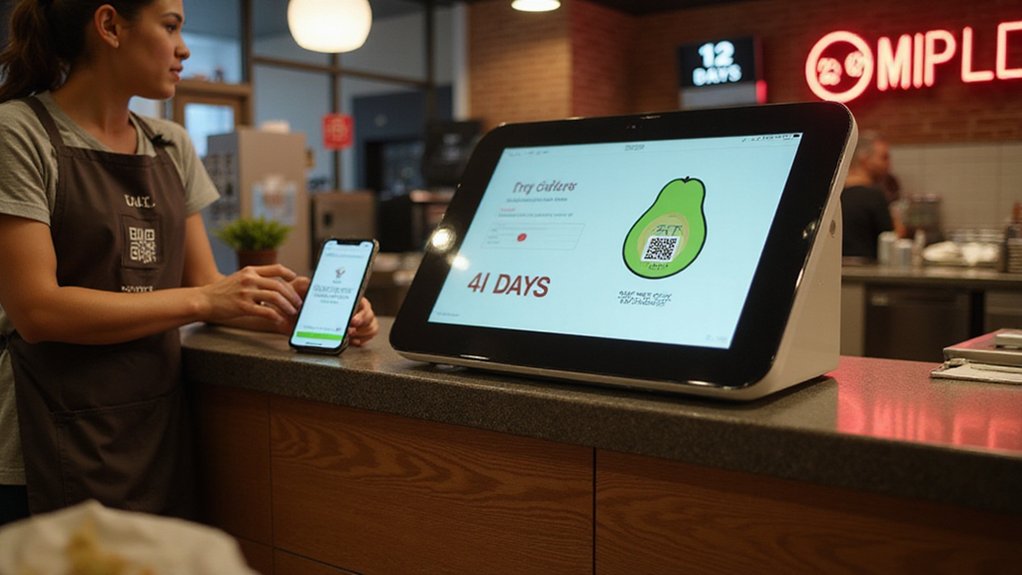AI’s growth is reshaping our world, not literally buckling reality. By 2030, AI could add $15.7 trillion to the global economy. It’s transforming healthcare with superior diagnostic tools and innovating education through personalized learning. Communication barriers are falling as AI translation improves. The job market is evolving, with 50-60% of roles facing significant changes. These technological shifts continue to accelerate, fundamentally altering how society functions.
As artificial intelligence continues to evolve at a remarkable pace, it’s reshaping nearly every aspect of modern society. Economists predict AI will add a staggering $15.7 trillion to the global economy by 2030. Businesses are already using AI to streamline operations, cut costs, and develop new revenue streams.
AI is revolutionizing society, accelerating productivity and transforming business operations worldwide.
While routine tasks become automated, humans are shifting toward more creative and problem-solving roles. The healthcare industry is experiencing dramatic changes. AI diagnostic tools now analyze medical images with impressive accuracy, often detecting diseases earlier than traditional methods. Predictive AI models help identify health risks in individuals and populations, allowing doctors to intervene sooner.
Remote monitoring devices powered by AI collect real-time health data, improving patient care and outcomes. The mental health sector is also benefiting, with AI applications offering personalized treatment approaches. AI-powered robotic surgeries are revolutionizing medical procedures with unprecedented precision.
Education systems worldwide are implementing AI-driven learning platforms that adapt to each student’s needs and pace. The market for AI in education is growing rapidly, reaching billions of dollars. Teachers spend less time on administrative tasks and more time engaging directly with students.
AI analytics provide insights into learning patterns, helping educators deliver more effective instruction. Our daily communications are transforming through AI-powered smartphones and devices. Speech recognition technology improves accessibility, especially for people with disabilities. Language translation apps break down barriers between different cultures.
Conversational AI now supports mental health services, customer service, and other daily interactions. The job market faces significant shifts as certain traditional jobs become automated while new roles emerge. Demand for skills in AI development, data analysis, and human-AI collaboration is increasing across industries. Experts predict 50-60% of jobs will be significantly affected by AI technologies in coming years.
Online learning platforms help workers adapt to changing job requirements. Companies are restructuring roles to balance automation with tasks requiring human creativity and problem-solving abilities.
As AI continues its remarkable progress, it’s creating a new reality where technology and human potential combine in unprecedented ways, though careful management is needed to guarantee these changes benefit society broadly.









